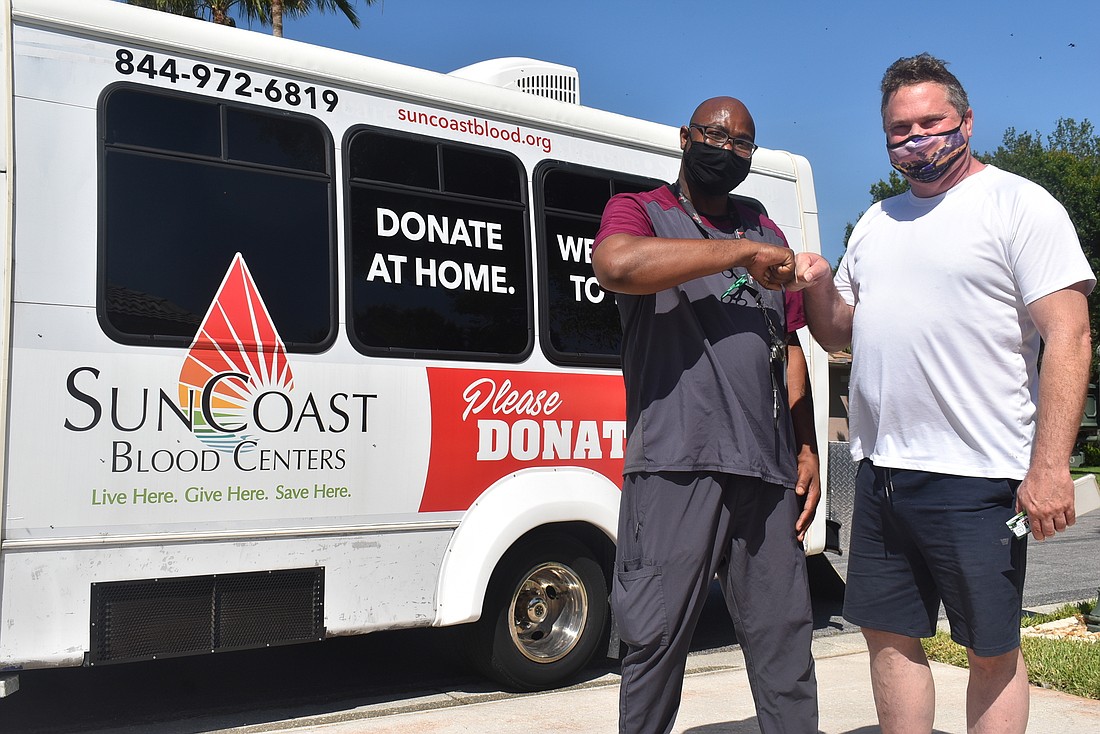- November 28, 2024
-
-
Loading

Loading

SunCoast Blood Centers Community Liaison Joan Leonard likes to challenge people to think of donating blood as a bucket list item.
Leonard said many people are scared to try it, but after doing it once, they are encouraged to continue donating.
“You realize that you're changing not only the person's life that you're helping to save but their whole family,” Leonard said.
Leonard’s advice is especially important now as donations to SunCoast have decreased while demand for blood is high as ever. As COVID-19 vaccines become readily available, Leonard said people are less likely to put off hospital visits for surgeries or cancer screenings, both of which can lead to an increased need for blood. More than 50% of SunCoast’s blood goes to cancer patients, according to Leonard.
SunCoast has adjusted to the challenges of the pandemic through the introduction of a concierge program. Individuals can call or email the blood center to schedule an appointment with one of three minibuses to come to their driveway or street and give a one-on-one donation. Leonard also encourages people to come to the headquarters in Lakewood Ranch, which opened during the pandemic a year ago.
Parrish resident Daniel Wansten has been donating blood for about 20 years. He tries to donate about once every eight weeks.
"What an incredible thing when you get a text back, 'You have just saved a life,'" Wansten said. "You get a lot of texts that are annoying. That's an incredibly good text."
Wansten tried the concierge program for the first time April 29 after he had trouble making an appointment at the Lakewood Ranch headquarters that would fit his schedule.
Unfortunately, Wansten's pulse was measured over 100 twice after a morning cup of coffee. This meant he had to defer his appointment to another day, but Technician Ryan Milner immediately scheduled an appointment to come back the next day.
Leonard said there are a couple of factors that might have led to a decrease in donations such as people starting to get out of the house and do more activities. When people get busy, they might be less likely to think about donating blood.
“They're catching up on life,” Leonard said. "They may not realize that donating blood on a regular basis should be a part of that life.”
While the area’s population is growing, Leonard said people don’t usually think about blood donation when they’re still settling into a new home. Leonard said demand for blood usually exceeds supply, and she's worried because the blood shortage is nationwide, meaning blood centers can’t help each other.
“Trying to keep up with the needs, it's like a dog chasing a cat,” Leonard said. “It keeps going and going. The more population we have here on the Suncoast, I think our needs are definitely going to increase.”
According to Leonard, about 20% of the U.S. population donated blood 15 years ago. She said that number is down to 3% today. This trend has emerged even though hospitals are finding more ways to use blood to treat patients.